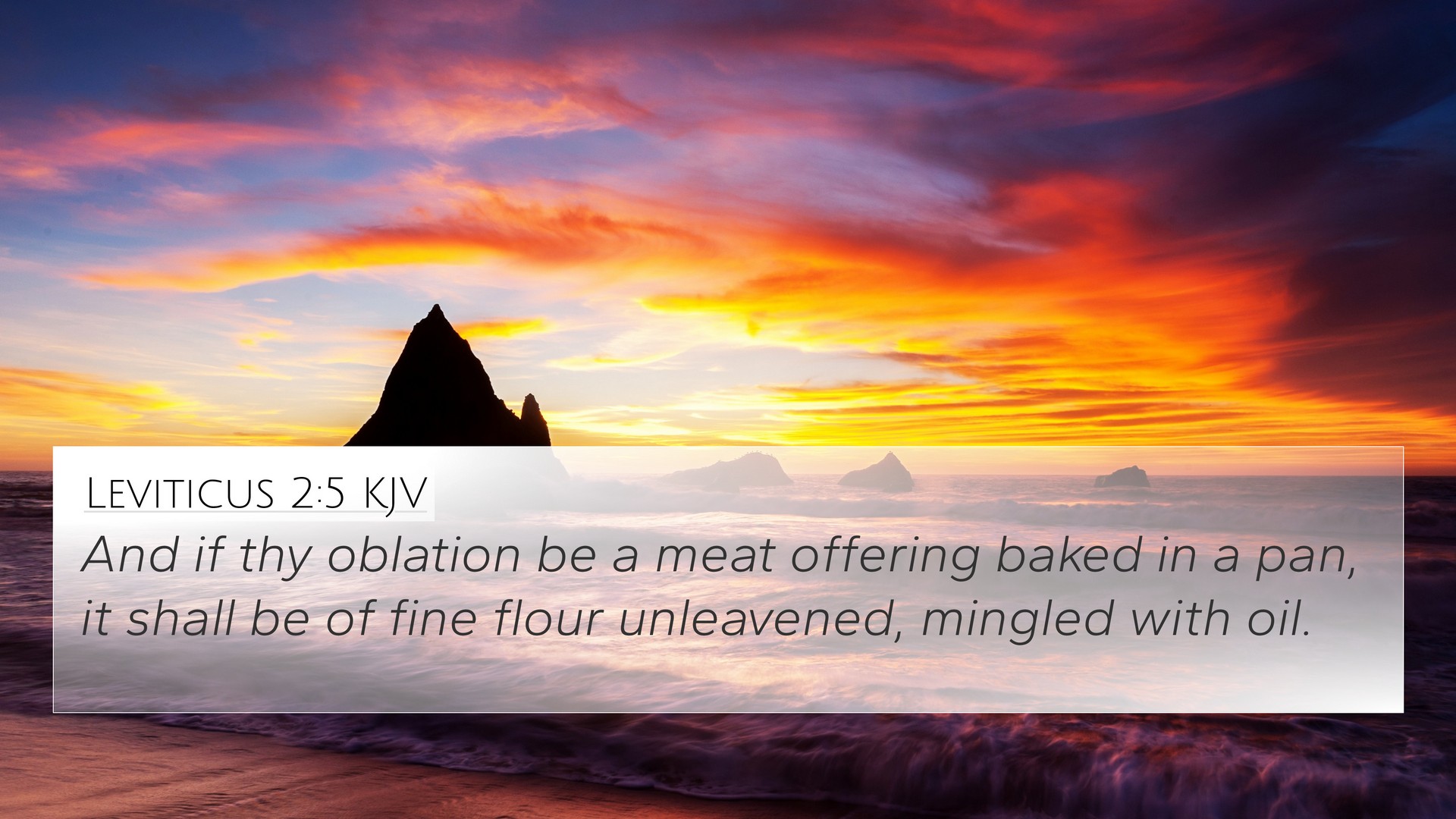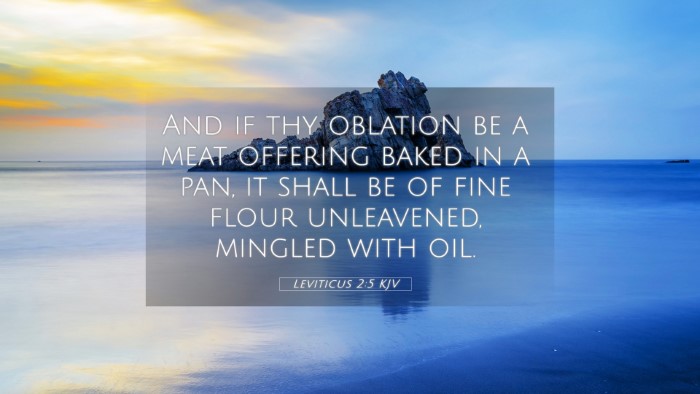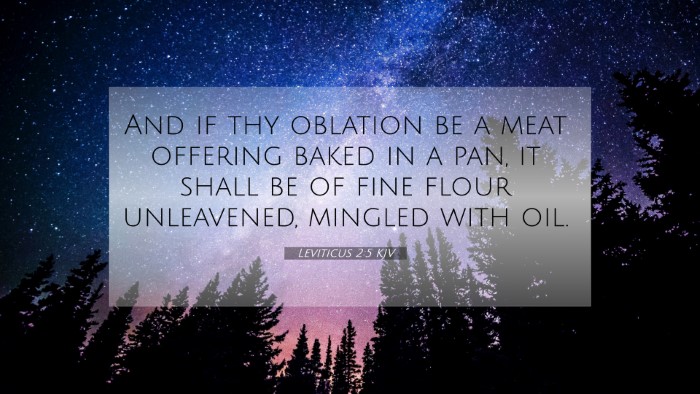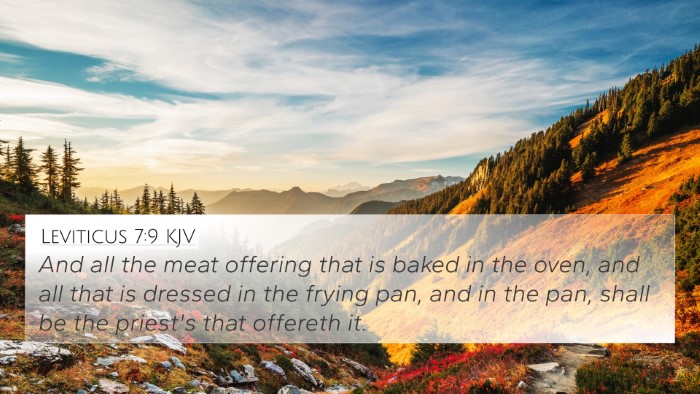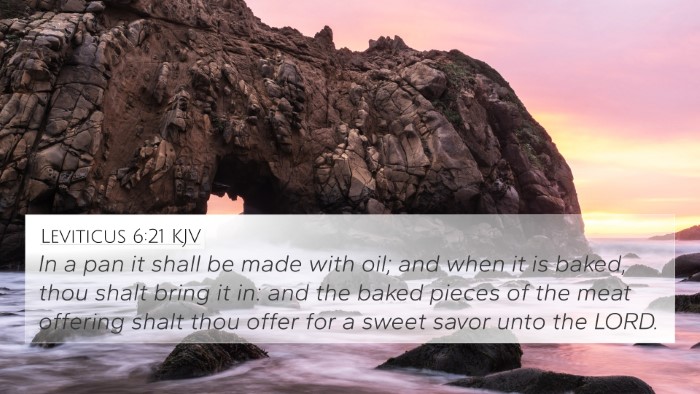Understanding Leviticus 2:5
Verse Text: "And if thy oblation be a meat offering baked in the oven, it shall be unleavened cakes of fine flour mingled with oil, or unleavened wafers anointed with oil."
Overview of Leviticus 2:5
Leviticus 2:5 provides instructions regarding the grain offerings in the Mosaic Law, specifically focusing on the type of preparation required for the offerings. This verse emphasizes the necessity for the offerings to be unleavened, illustrating a significant religious principle.
Key Themes
- Purity: The requirement for unleavened bread signifies purity and dedication to God.
- Offerings: It highlights the types of offerings acceptable to God, emphasizing the importance of proper worship.
- Symbolism of Oil: The use of oil in the offerings signifies the presence and blessing of the Holy Spirit.
Biblical Cross-References
- Exodus 12:15 - The prohibition of leaven during Passover.
- Leviticus 2:4 - Specifications for baking the grain offering.
- Matthew 5:13 - The metaphor of salt as a preservative effect of the righteous.
- 1 Corinthians 5:6-8 - Purging out the old leaven.
- John 6:35 - Jesus as the bread of life, connecting to the offerings' symbolism.
- Numbers 28:5 - Instructions on grain offerings in daily worship.
- Hebrews 13:15 - Offering the sacrifice of praise to God.
Interpretations from Commentaries
Matthew Henry: Henry notes that the unleavened nature of the cakes represents the absence of sin and corruption. He explains that these offerings were to be made with the best of what one possessed, symbolizing dedication and devotion to God.
Albert Barnes: Barnes emphasizes the significance of the oil as a symbol of joy and abundance, associating it with the ideal state of being blessed by God. He mentions that the unleavened cakes were to be prepared in a manner showing profound respect and seriousness towards God.
Adam Clarke: Clarke elaborates on the different forms in which grain offerings could be presented, emphasizing their role in maintaining the relationship between God and His people. He also notes that offerings required specific preparation to be deemed acceptable, which indicates the importance of meeting God’s standards in worship and sacrifice.
Importance of Cross-Referencing
To fully appreciate the meaning of Leviticus 2:5, one can utilize various tools for Bible cross-referencing. These include:
- Bible Concordance: A guide for finding related verses, enhancing one's understanding through thematic connections.
- Bible Cross-Reference Guide: A resource that links verses together, highlighting their connections and meanings.
- Cross-Reference Bible Study: A method for exploring the interrelatedness of Biblical texts and deepening insight into scripture.
Connections Between Bible Verses
Connections between Bible verses offer a rich tapestry of meaning. For instance, the need for unleavened bread in the Old Testament connects seamlessly with the New Testament depiction of Jesus, the bread of life, underscoring a continuous theme of purity and sacrificial love.
Conclusion
In summary, Leviticus 2:5 is a vital verse that encapsulates themes of purity, proper worship, and sacrifice. The insights drawn from various commentaries combined with cross-references enrich our understanding. This verse not only serves as an instruction for ancient worship but also underscores enduring spiritual principles relevant for contemporary faith practice.
